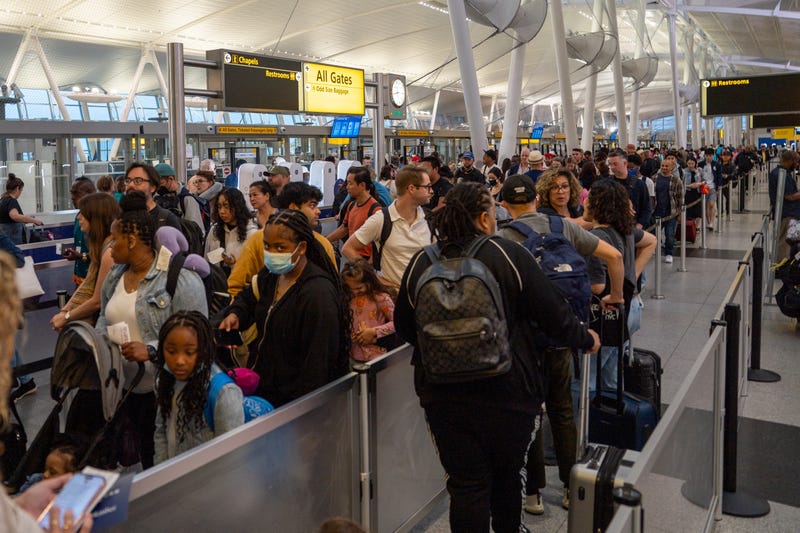
NEW YORK (1010 WINS/WCBS 880) – The Centers for Disease Control and Prevention is looking to widen its infectious disease surveillance program to tracking viruses such as flu, RSV, and other respiratory illnesses at four major airports including New York’s John F. Kennedy International airport.
The expansion will include more than 30 pathogens.
The CDC already has surveillance programs in place as it aims to monitor travelers for the early detection of emerging infectious diseases and prevent their spread across international borders as US airports receive over 1 billion travelers annually, according to the CDC.
"We have known that travelers are a very important population to consider for tracking new and emerging infections," Dr. Cindy Friedman, leader of the CDC's traveler genomic surveillance program, told CNN.
The CDC's Traveler-based Genomic Surveillance (TGS) program, which began as a proof-of-concept in 2021, operates on a voluntary basis where travelers at participating airports provide nasal swab samples.
These samples are then tested, with positive cases undergoing genome sequencing to identify variants and inform public health responses.
The initiative also includes a wastewater surveillance component, where samples are collected from airplanes and analyzed for pathogens.
Currently, the program is active at seven major US international airports and has tested over 370,000 travelers, identifying samples from more than 135 countries, according to the CDC.
It’s now expanding to test for more respiratory illnesses at Boston Logan International Airport, San Francisco International Airport, Dulles International Airport in Washington, D.C., and John F. Kennedy International Airport in New York.
“The dream is that you’re running similar programs across the world... so you get much earlier detection than if somebody shows up at a hospital of something emerging, " Matthew McKnight of Ginkgo Bioworks told CNN.
